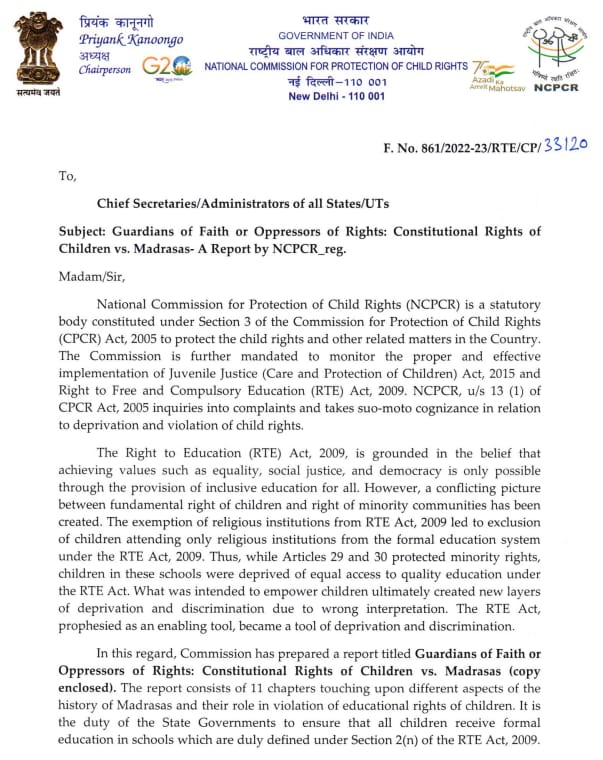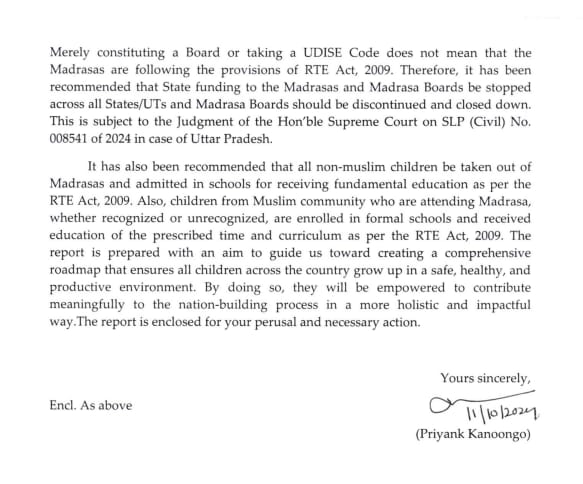The National Commission for Protection of Child Rights (NCPCR) has recommended that state funding for madrasas across India be halted and that madrasa boards be dissolved. This recommendation is part of a report titled “Guardians of Faith or Oppressors of Rights: Constitutional Rights of Children vs. Madrasas,” which comprises 11 chapters discussing the history of madrasas and their alleged role in violating children’s educational rights.
NCPCR chief Priyank Kanoongo addressed all Chief Secretaries of states and Union Territories, emphasizing the importance of the Right to Education (RTE) Act, 2009. He stated that the act aims to promote values like equality, social justice, and democracy through inclusive education. However, the commission noted a conflicting situation between the fundamental rights of children and the rights of minority communities.
The report highlighted that simply establishing a madrasa board or acquiring a UDISE Code does not guarantee compliance with the RTE Act. As a result, the NCPCR has recommended an end to state funding for madrasas and the closure of madrasa boards across all states and Union Territories, pending a Supreme Court ruling related to a case in Uttar Pradesh.


Additionally, the commission urged that all non-Muslim children be removed from madrasas and enrolled in formal schools in accordance with the RTE Act. It also recommended that Muslim children attending madrasas, whether recognized or unrecognized, be enrolled in formal educational institutions to receive the required curriculum and duration of education.
According to data from UDISE 2021-22, around 12 million Muslim children lack access to formal education. The report cited issues related to accountability in many madrasas, including infrastructure shortcomings and instances of child rights violations.
The recommendations have faced criticism from Samajwadi Party leader Akhilesh Yadav, who argued that the Constitution guarantees rights for all citizens. He accused the ruling BJP of attempting to create divisions based on caste and religion but expressed confidence that the public is becoming increasingly aware of the discriminatory politics at play.
Last month, the NCPCR also submitted a request to the Supreme Court to integrate madrasas into the formal education system.



